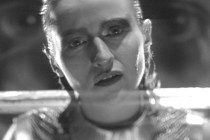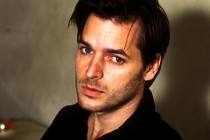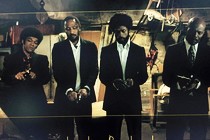Renoir: father, son, and muse
- Art and love in 1915, when a young woman meets painter Auguste Renoir towards the end of his life, and his son, future great filmmaker Jean
An idyllic green landscape on the Côte d’Azur with a breathtaking panoramic view onto the sea. At the bottom of a garden, in his studio, a great master painter is snoozing in his wheelchair towards the end of his life. His name: Auguste Renoir. We are in the year 1915, and old age is slowly paralysing the 75-year-old artist’s limbs one by one. This world famous painter, played by the brilliant Michel Bouquet, is one of the main characters in Gilles Bourdos (discovered at the Directors’ Fortnight in 1998)'s fourth, appropriately titled feature film, Renoir [+see also:
trailer
interview: Christa Théret
film profile]. Tomorrow evening, the film will close the Un Certain Regard section at the 65th Cannes Film Festival, an opportunity the major film festival could not miss, especially as its plot, based on a true story, also involves a certain Jean Renoir, who then became a great filmmaker.
The story starts when “a girl from nowhere sent by a dead woman [the painter’s recently deceased wife]" arrives at the Renoir country home. Andrée (a voluptuous Christa Theret very comfortable in the nudity often required by her role) wants to pose for the artist. The young woman, whose prime worry is to be degraded to the rank of a household servant, claims to be an artist. Her ambition soon finds an ally in the painter’s renewed motivation, when he decides to throws all his dwindling energy onto the canvas, as if to push back his death by painting this “velvety skin” ("If you see Titian’s Courtisans, and you don’t want to stroke them, then you haven’t understood much about painting or about life.") Returning to the roots of his art ("All my life I have burdened myself with complications, today I’m simplifying”), Auguste Renoir even gives up walking to save up the little energy he has left for a painting that he considers to be the work of a worker not of an artist.
But another character, back home wounded from the front lines of the First World War, will also fall for Andrée’s insolent charm: Jean (Vincent Rottiers), the painter’s youngest son. The 21-year-old admires his father, but nevertheless seeks to escape his slightly overwhelming personality and fame. During this summer of 1915, he will make decisive choices about his future. Thanks to Andrée’s love and desperate thirst for artistic success ("Everything has to be taken. I don’t have the patience to wait.”), Jean promises to launch into filmmaking with her after the war, to which he returns willingly (to the great displeasure of his lover and father) in an unconscious urge to liberate himself from his father’s philosophical influence ("Don’t force destiny, you have to let yourself drift in life like a cork in a stream’s current.").
Renoir is interesting as history of art, but it also turns out to be a pleasant film, a work bleached in the sun of a beautiful, heavenly landscape. Gilles Bourdos (who co-wrote the screenplay with Jérôme Tonnerre, in collaboration with Michel Spinosa)'s choice not to convey the period’s social realism may be debatable, but it gives him the freedom to recreate beautiful tableaux bathed in golden light. Even if the film's rhythm sometimes is a little too languid, Michel Bouquet’s immense talent more than makes up for this, as an Auguste Renoir worthy of the legend.
(Translated from French)
Did you enjoy reading this article? Please subscribe to our newsletter to receive more stories like this directly in your inbox.























